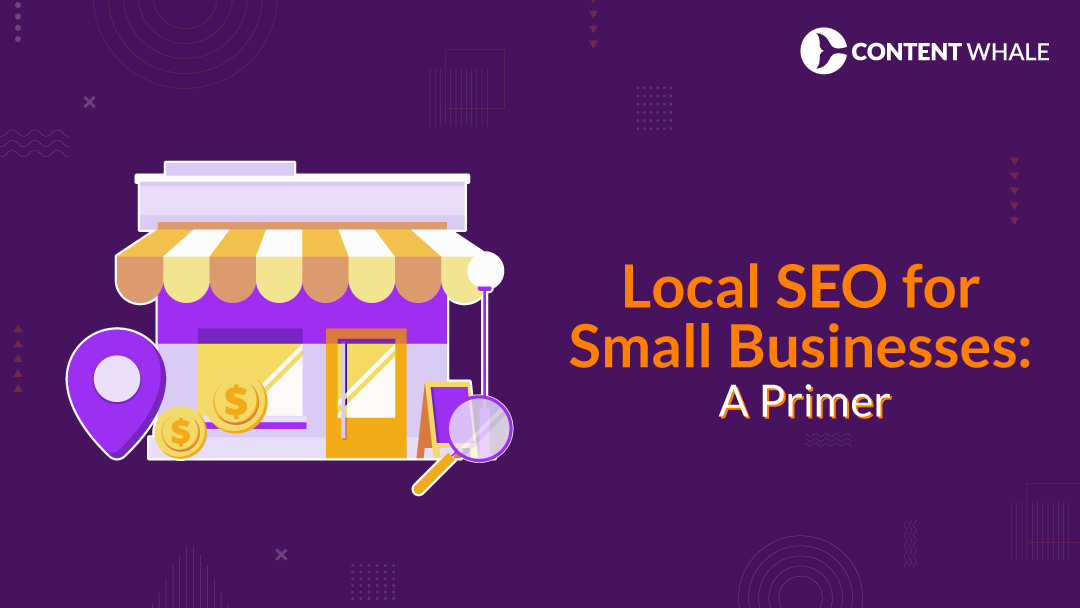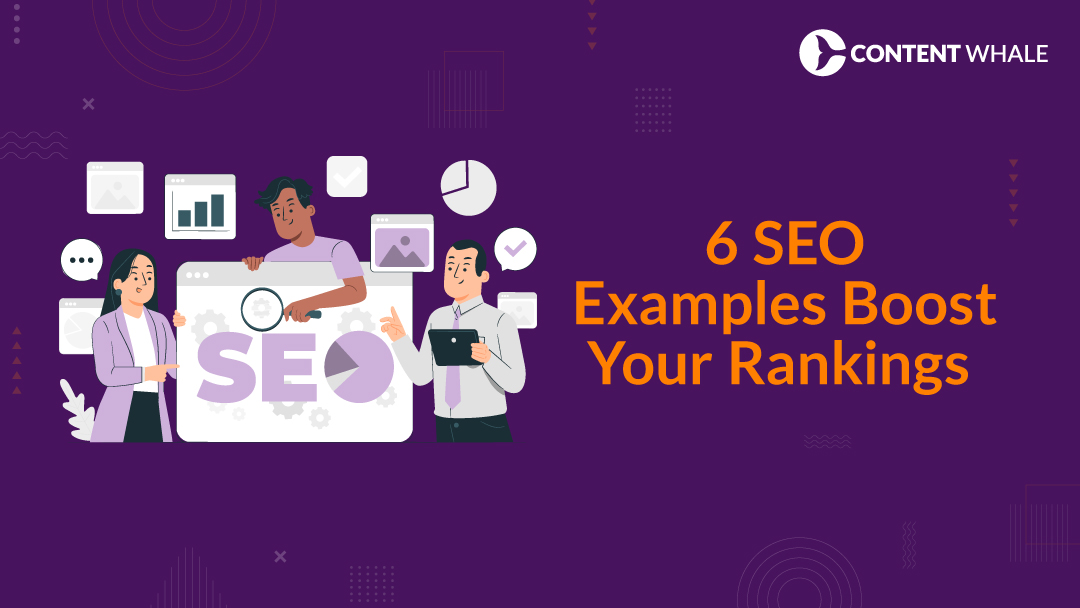As businesses vie for prominence in an increasingly digital marketplace, search engine positioning (SEP) emerges as a pivotal strategy for achieving visibility. Remarkably, 68% of online experiences commence with a search engine, underscoring the profound impact of effective SEP strategies.
This figure not only highlights the importance of being visible on search engines but also illustrates why mastering Google keywords ranking and search engine placement can significantly alter a company’s online impact.
So, what is search engine positioning?
At its core, SEP is the strategic optimization of web pages to enhance their Google ranking of website on search engine results pages (SERPs). It goes beyond the broader scope of SEO positioning by focusing meticulously on specific keywords to boost the visibility of targeted web pages. This precision differentiates SEP from general SEO, which encompasses a broader array of optimization techniques.
The benefits of excelling in SEP are manifold. Firstly, it significantly boosts website traffic and visibility, directly contributing to increased business opportunities.
Additionally, high visibility in search results tends to enhance brand credibility and authority, which are essential for winning consumer trust in competitive markets.
More so, a well-implemented SEP strategy can yield superior lead quality and higher conversion rates, optimizing the return on investment for digital marketing efforts. Compared to paid advertising, SEP is a cost-effective approach, offering sustained benefits without the recurring costs associated with pay-per-click campaigns.
Understanding both user intent and the algorithms used by search engines like Google is critical. These algorithms are sophisticated systems designed to match user queries with the most relevant, authoritative content.
By aligning your website content with these factors, you can effectively improve your site’s SEO positioning and Google ranking of website.
SEP should be a key focus for anyone aiming to establish a robust online presence. This includes small to large businesses, entrepreneurs, bloggers, and digital marketers who aspire to leverage the power of the internet to expand their reach and influence.
By mastering SEP, these individuals and organizations can secure a competitive edge in their respective domains, ensuring that their websites are not just visible, but prominent in the eyes of their target audience.
Keyword Research & Targeting for Effective SEP

1. The Importance of Strategic Keyword Research
Effective search engine positioning hinges on strategic keyword research. It serves as the foundation for SEP by identifying the specific phrases and terms most relevant to target audiences. Notably, a large majority of keywords, approximately 94.74%, receive ten or fewer monthly searches, indicating the importance of selecting precise and relevant keywords.
2. Utilizing Advanced Tools for Keyword Discovery
To navigate the complexities of google keywords ranking, marketers rely on sophisticated tools such as Google Keyword Planner, SEMrush, and Ahrefs. These platforms are crucial for discovering both broad and niche keywords, allowing businesses to penetrate specific market segments. They also offer insights into competitors’ keyword strategies, which can inform and enhance one’s own approach.
3. Choosing Keywords with High Conversion Potential
The selection of keywords extends beyond search volume; it’s about finding terms that not only attract traffic but also convert visitors into customers. High-volume, low-competition keywords are particularly valuable, especially those with strong commercial intent. These keywords are used by potential customers who are close to making a purchasing decision, thus improving a website’s search engine placement and boosting its google ranking of website.
4. Aligning Keywords with User Intent
The ultimate goal of keyword targeting is to align content with user intent, anticipating and meeting the needs of potential customers. This alignment ensures that the content is relevant and valuable, enhancing its effectiveness and visibility in search results. Effective targeting supports not just traffic growth but also enhances the SEO positioning and overall digital presence of a business.
By emphasizing comprehensive keyword research and targeted strategies, businesses can significantly improve their SEO positioning and achieve superior google ranking of website. This focused approach ensures that content is not only visible but also resonates with the intended audience, driving both engagement and conversions. Effective keyword targeting is essential for anyone looking to excel in search engine positioning and secure a competitive edge in the digital marketplace.
1. Crucial Role of On-Page SEO
On-page SEO is a vital component of search engine positioning. It ensures that a website’s content and structure are designed to meet the criteria of search engines and the expectations of users. When done correctly, on-page SEO not only helps websites achieve better google ranking of website but also enhances the user experience.
2. Optimizing Title Tags and Meta Descriptions
- Title Tags: These are critical as they give search engines and users a quick insight into the content of a page. Including targeted google keywords ranking in the title tags helps improve visibility and drives more clicks from search engine results.
- Meta Descriptions: While not a direct ranking factor, meta descriptions influence click-through rates. A well-crafted meta description should provide a concise summary of the page’s content, incorporating relevant keywords like search engine placement to entice users to click on the link.
3. Enhancing Content with Keywords and Readability
- Keyword Density: This refers to the frequency with which target keywords appear in the content. Optimal keyword density helps improve a page’s relevance to specific searches without engaging in keyword stuffing, which can harm a site’s SEO positioning.
- Content Readability: Making content easy to read and navigate is essential. Clear, well-structured content that logically incorporates important keywords can significantly enhance user engagement and satisfaction, which are key metrics that search engines consider for ranking.
4. Image Optimization
Utilizing descriptive alt tags for images not only aids in accessibility but also helps search engines understand the images’ content and context, contributing to improved google ranking of website. Alt tags should include relevant keywords naturally to boost a page’s overall SEO.
5. Strategic Internal Linking
A robust internal linking strategy helps search engines discover new pages on a website and understand their relationship to each other. By using correct anchor text and linking to relevant pages, businesses can enhance site navigation and distribute page authority throughout their site, which is beneficial for search engine positioning.
Each of these on-page elements plays a crucial role in enhancing a website’s visibility and performance in search results. By meticulously optimizing these elements, businesses can improve their SEO positioning and achieve higher rankings, which is essential for attracting more organic traffic and achieving online success.
Technical SEO for a Flawless Foundation

1. Essential Elements of Technical SEO
Technical SEO forms the backbone of effective search engine positioning, ensuring that a website meets the technical requirements of modern search engines for improved indexing and crawling. These optimizations are pivotal for securing and maintaining high google ranking of website.
2. Speed Optimization: A Priority for SEO
Website speed is a critical factor for user experience and SEO. Fast-loading websites not only hold users’ attention but also rank higher in search results. Techniques such as image compression, minimizing code, and leveraging browser caching can significantly reduce load times, thus improving SEO positioning and user satisfaction.
3. Mobile Optimization for Increased Engagement
With mobile devices accounting for approximately 52.2% of web traffic globally, having a mobile-friendly website is no longer optional. Responsive design ensures that your site looks and performs well on all devices, a factor that significantly impacts google ranking of website due to Google’s mobile-first indexing.
4. Implementing Structured Data to Stand Out
Structured data markup is a powerful tool that helps search engines understand the content of your website, enabling enhanced search results like rich snippets. These rich snippets can improve visibility and click-through rates by providing users with more information about what your site offers, directly in the SERPs.
5. Securing Your Site with HTTPS
Security is a top priority for both users and search engines. Transitioning from HTTP to HTTPS secures your website and reassures visitors. Google acknowledges HTTPS as a ranking signal, which means a secure site is more likely to achieve better search engine placement.
6. Efficient Use of Sitemaps
Sitemaps are crucial for search engines to locate and index your web pages. Ensuring that your sitemap is up-to-date and submitted to search engines like Google via the Google Search Console aids in faster discovery and indexing of pages, which is essential for effective search engine positioning.
By focusing on these technical aspects, businesses can create a robust foundation for their SEO efforts. This not only aids in achieving better google keywords ranking but also ensures that the website remains accessible and performs well across all search engines and devices. These technical enhancements directly contribute to the overarching goal of optimizing SEO positioning and securing a dominant online presence.
Content Marketing & Link Building: Enhancing SEP

1. Power of High-Quality Content
High-quality content is crucial for successful search engine positioning. Engaging, informative content not only attracts visitors but also encourages them to stay longer on your website, reducing bounce rates and increasing the likelihood of conversions. Producing authoritative content regularly helps establish your site as a reliable source of information, significantly boosting your SEO positioning and google ranking of website.
2. Content Marketing Strategies
- Blog Content Creation: Consistently creating blog posts around relevant google keywords ranking draws organic traffic. This strategy enhances your site’s authority and search engine placement by keeping your content fresh and aligned with what users are searching for.
- Guest Blogging and Backlink Acquisition: Writing guest posts for reputable sites in your industry can lead to valuable backlinks, a major factor in SEO positioning. These backlinks act as endorsements, signaling to search engines that your content is credible and valuable, thereby improving your google ranking of website.
- Leveraging Social Media for Content Promotion: Promoting content through social media platforms increases visibility and drives traffic back to your website. It also provides an opportunity to engage directly with your audience, further establishing your brand’s presence and authority online.
3. Building a Diverse Backlink Profile
A diverse backlink profile strengthens your website’s authority and enhances SEO positioning. Aim to acquire backlinks from various sources that are relevant to your industry. This not only improves your search engine positioning but also helps to insulate your site from algorithm changes that might otherwise negatively impact your SEO positioning.
4. Utilizing Content to Establish Authority
Content is a powerful tool for establishing thought leadership in your industry. By addressing topics that resonate with your audience and providing unique insights, you can position your brand as an expert. This credibility is essential for building trust and improving your site’s google ranking of website.
Implementing these content marketing and link-building strategies effectively will lead to improved search engine positioning. As your content gains more visibility, it attracts more traffic, which can translate into increased leads and sales, ultimately boosting your business’s bottom line.
Local SEO for Brick-and-Mortar Businesses

1. The Significance of Local SEO
Local SEO is a key component of search engine positioning for businesses with physical locations. It tailors SEO strategies to enhance visibility in local search results, which is vital for attracting local customers. Local SEO not only boosts your google ranking of website in local searches but also drives foot traffic, making it a pivotal strategy for businesses looking to capitalize on the geographic proximity of their customer base.
2. Optimizing Google My Business
A fully optimized Google My Business (GMB) listing is essential for successful local SEO. This tool allows businesses to manage their online presence across Google, including Search and Maps. By accurately listing your business name, address, and phone number (NAP), and regularly updating your GMB with new photos, promotions, and responding to customer reviews, you can significantly improve your search engine placement and local SEO positioning.
3. Building Local Citations
Local citations, which are online mentions of your business’s name, address, and phone number, play a crucial role in local SEO positioning. Consistency in these citations across various directories supports your website’s search engine positioning by reinforcing the legitimacy and relevance of your business to specific localities.
4. Engaging with Customer Reviews
Responding to customer reviews is not just good business practice—it also influences local SEO positioning. Positive customer interactions that result in good reviews can enhance your business’s online reputation and google ranking of website. Moreover, actively engaging with reviews can signal to Google that your business is active and customer-focused, factors that positively impact search engine placement.
5. Utilizing Local Keywords
Integrating location-specific keywords into your website’s content can further enhance your local search engine positioning. For example, targeting phrases like “[your city] + [your service]” can help capture the attention of local searchers and signal to search engines the relevancy of your site to those particular geographic search queries.
By implementing these local SEO strategies, brick-and-mortar businesses can improve their Google ranking of websites and attract more local customers. Digital marketing firms that offer local SEO services can help businesses with this targeted approach to SEO positioning. This not only helps them gain visibility in their specific locales but also supports broader marketing objectives by aligning online content with local consumer behaviours and preferences.
Ongoing Monitoring & Analytics

1. The Vital Role of Continuous Monitoring in SEP
Continuous monitoring is crucial for maintaining and improving search engine positioning. Regular analysis allows businesses to understand how their SEO positioning strategies are performing and to identify areas for enhancement. Monitoring involves tracking key metrics such as google ranking of website, organic traffic, user behavior, and conversion rates.
2. Leveraging SEO Tools for Effective Monitoring
Several tools are invaluable for SEO monitoring. Google Search Console offers comprehensive insights into how Google views your site, including information on search traffic, google keywords ranking, and indexing status. Tools like Ahrefs and SEMrush provide deeper analyses, including backlink profiles and competitor comparisons. These tools are essential for businesses aiming to improve their search engine placement and overall online visibility.
3. Analytics to Drive SEP Decisions
Analytics play a significant role in refining SEO strategies. By analyzing data from SEO tools, businesses can make informed decisions that align with their goals. For example, if certain pages are performing well in terms of google ranking of website, similar strategies can be applied to other pages to enhance their SEO positioning. Conversely, pages that are underperforming can be adjusted based on insights derived from analytics.
4. Adjusting Strategies Based on Performance Metrics
Effective SEO is not a set-it-and-forget-it endeavor. It requires ongoing adjustments and refinements based on performance data. This might include tweaking on-page SEO elements, revising content, or altering backlink strategies to improve search engine positioning. Continuous learning from the available data helps businesses stay ahead of SEO trends and maintain a competitive edge.
5. Encouraging Proactive SEO Management
Ultimately, the goal of ongoing monitoring and analytics is to encourage proactive management of a website’s SEO. Regular reviews of SEO performance help ensure that efforts are aligned with the latest search engine algorithms and market trends. This proactive approach is vital for businesses that aim to consistently rank well in SERPs and achieve sustainable online success.
By integrating continuous monitoring and analytics into their SEO strategies, businesses can keep their finger on the pulse of their digital marketing efforts, ensuring that they are always positioned to capitalize on opportunities to enhance their search engine positioning and achieve their marketing objectives.

Effective search engine positioning (SEP) is essential for businesses aiming to optimize their online visibility and attract more traffic to their websites. By focusing on strategic SEO positioning, companies can significantly enhance their google ranking of website, making their online presence more prominent and accessible to their target audience.
Key Takeaways for SEP Success
- Strategic Keyword Optimization: Selecting and using the right keywords is fundamental for improving search engine placement and attracting the right audience.
- On-Page SEO Excellence: Properly optimizing website content and structure helps align with search engine algorithms, ensuring content is discoverable and ranks well for relevant google keywords ranking.
- Technical SEO Foundations: Ensuring that the technical aspects of your website are optimized is critical for both user experience and search engine crawlability, impacting overall SEO positioning.
- Content and Link-Building Strategies: High-quality content coupled with robust link-building campaigns can establish authority and drive significant improvements in google ranking of website.
- Local SEO for Targeted Visibility: For businesses with physical locations, local SEO is vital for attracting local customers and enhancing local search visibility.
We encourage all businesses and website owners to apply the strategies outlined throughout this guide. Regularly updating and refining these strategies based on ongoing analytics and SEO trends will help maintain and improve your search engine positioning.
If you’re ready to take your website’s SEO to the next level, consider implementing these strategies diligently and monitoring their effectiveness over time. For ongoing tips and updates on SEO best practices, subscribing to an SEO newsletter or consulting with SEO experts can provide additional support and insights.
By adhering to these guidelines and continuously adapting to the evolving digital environment, businesses can achieve sustainable success and a strong online presence, ensuring that they not only reach but also exceed their digital marketing goals.

How long does it take to see results from SEP efforts?
SEO and search engine positioning are ongoing processes. Typically, improvements in google ranking of website and traffic can begin to show within a few months of implementing SEO strategies. The specific timeline can vary depending on the competitiveness of your industry, the current state of your website, and the depth of your SEO efforts.
Do I need to hire an SEO professional?
The decision to hire an SEO professional depends on the complexity of your site and the competitiveness within your industry. Beginners or those with a basic understanding of SEO might manage fundamental SEO positioning strategies themselves. However, for competitive keywords or intricate issues, an SEO professional can offer valuable expertise to enhance your search engine placement.
Are there any “black hat” SEO techniques I should avoid?
Absolutely avoid “black hat” SEO techniques that try to manipulate search engines into ranking your site higher. Techniques like keyword stuffing, cloaking, and using private link networks can result in severe penalties, negatively impacting your SEO positioning. Focus on ethical SEO practices for sustainable benefits.
What are some free SEO tools I can use?
There are many free tools available that can aid in improving your search engine positioning. Google’s Google Analytics and Google Search Console are invaluable for monitoring site performance and google keywords ranking. Other tools like Moz’s Free SEO Tools and Ubersuggest also offer helpful insights for optimizing your site.
How can I stay updated on the latest SEO trends?
Keeping up with the latest SEO trends is crucial for effective SEO positioning. Follow industry blogs like Search Engine Journal, Moz Blog, and Neil Patel’s blog. Attending webinars, subscribing to newsletters from SEO experts, and engaging in online forums are great ways to stay informed about the latest strategies and changes in google ranking of website.
Do you offer any SEO services?
Yes, our team provides comprehensive SEO services designed to boost your search engine positioning. We cover everything from keyword research and content creation to technical SEO and link building, offering customized solutions that enhance your google ranking of website and increase organic traffic. For more information, please contact us or visit our services page.






